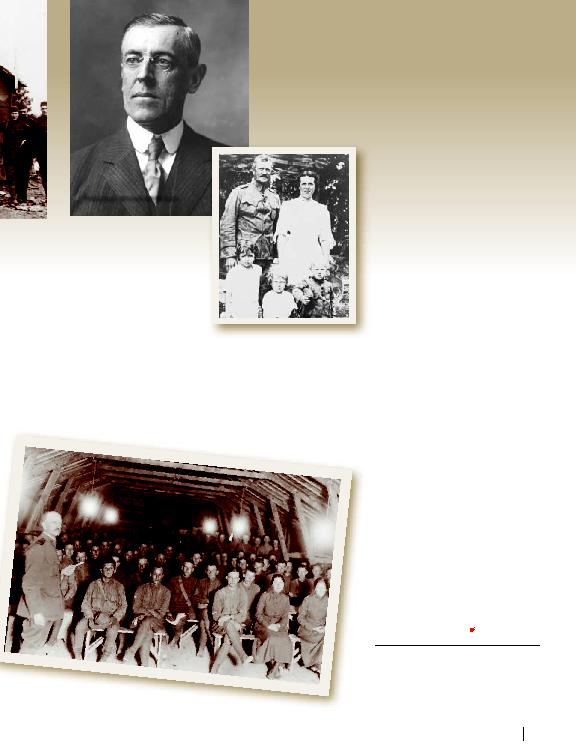
American army as an entity; they
wanted a manpower pool, insisting that
we turn over the American soldiers to
them as replacements for use in their
own severely depleted fighting forces.
But Pershing was determined to carry
out his directive from the president.
conference, he saw the general con-
fronted by representatives of the
three Allied nations who were behaving
like a swarm of angry bees. It hardly
seemed a propitious moment to present
his offer. Imagine: Here was this
men and women side�by�side with
American troops, probably even in
combat zones! Perhaps, after all these
years, it's hard to fully grasp the
situation. It must have seemed like a
scene from a comic opera. In the midst
of this tense dispute involving four major
bearing nothing but a letter. So what did
Pershing do? Did he brush him off, like
some of his subordinate officers had
done? No. He welcomed him warmly,
and before they were through, accepted
his offer! What the others probably did
not know about, at least at the time, was
Pershing's experience in San Francisco
two years earlier, and the unusual
kindness of the Salvationists. He knew
that these were his kind of people, just
what he would need for keeping up the
spirits of his troops.
have. They were what we might call "or-
dinary Salvation Army officers," one from
New Jersey, the other from California,
just doing what the Lord called them to
do. But their thoughtful acts of kindness,
carried out with compassion as well as
patience and persistence (especially
the latter in the case of the alcoholic),
led ultimately to an audience with an
ambassador, followed by free access to
military officers who perhaps shrugged
their shoulders as they shunted "this
guy from The Salvation Army" on to the
general himself. Imagine their surprise
at the outcome, since they had no clue
regarding Pershing's feelings of gratitude
toward the Army. And it all happened
because of two caring officers, living some
3,000 miles apart, who probably didn't
even know each other!
Forest Park, Illinois.